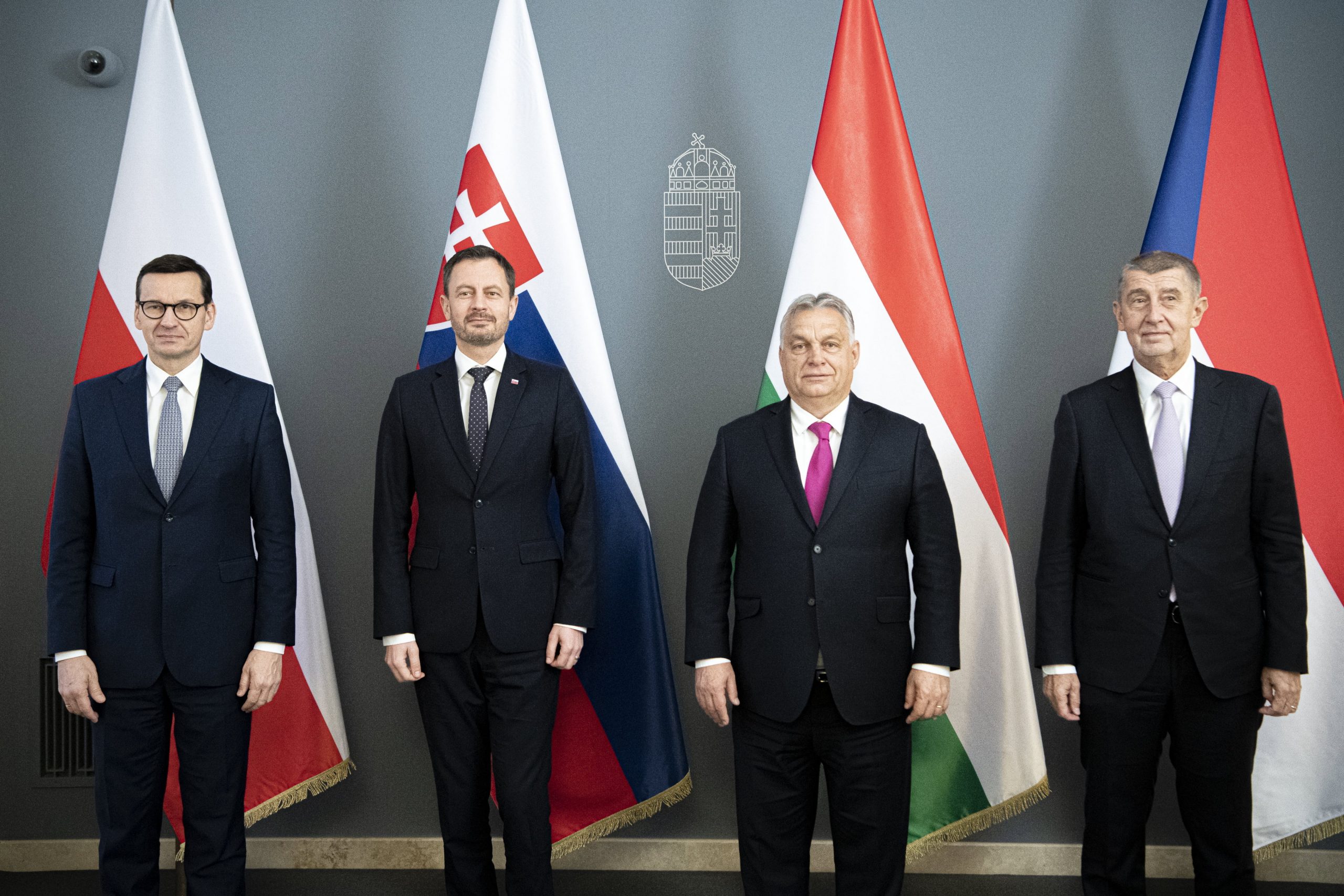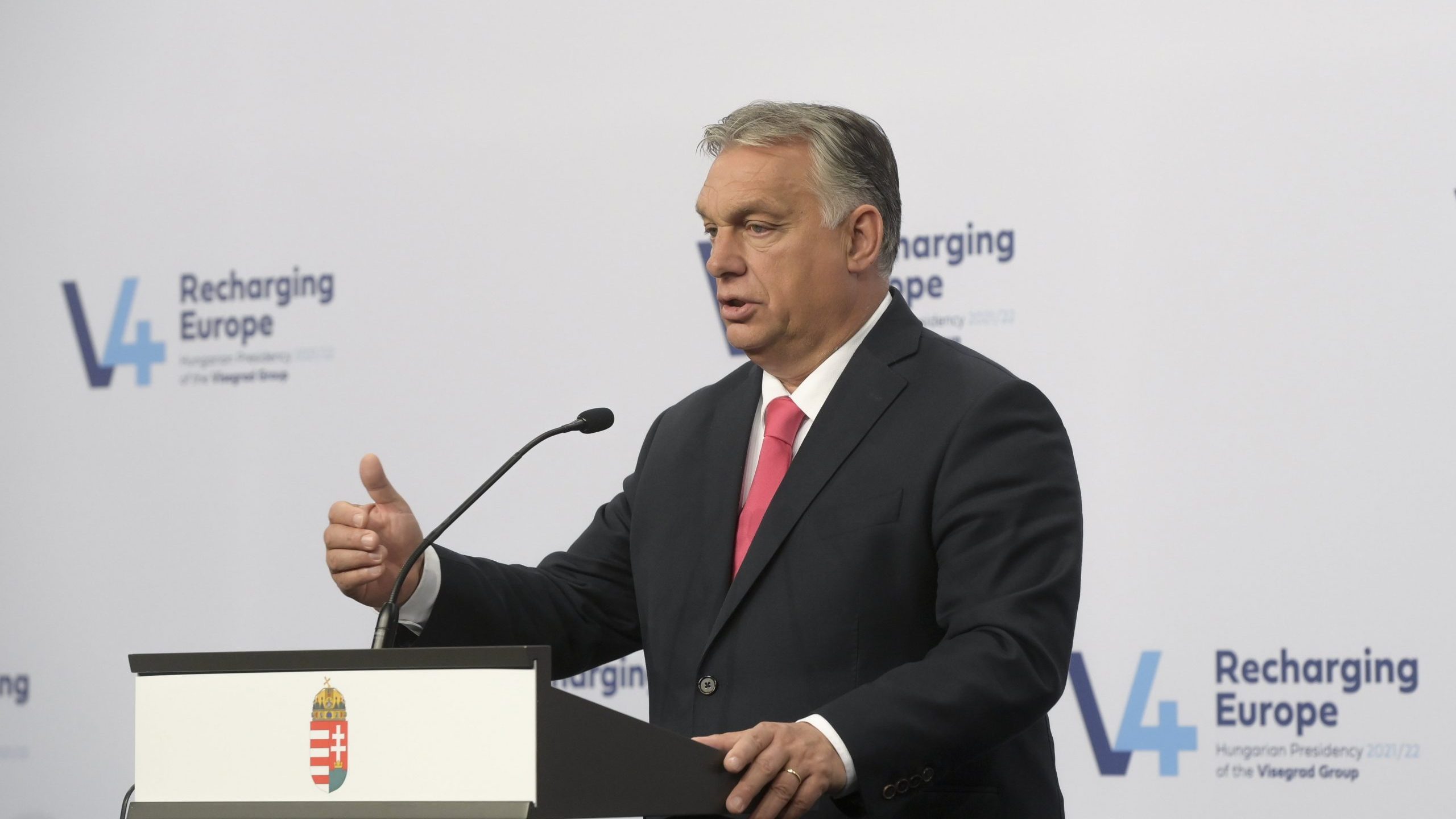
The Prime Minister described the businessman as the most corrupt man in world politics. Mr Orbán said George Soros has many politicians in his pay. He is the one who corrupts Brussels bureaucrats most who then blackmail and threaten Hungary, he said. George Soros recently published a lengthy article in which he gave Brussels bureaucrats instructions about what to do. There was a composed reaction to this at the meeting of the European Union’s heads of state and government: they know how to settle a dispute, they will solve this “amongst themselves,” the Prime Minister said.
He stressed that George Soros is threatening Hungary and Poland as in the EU disputes are settled through negotiations. Cut-throat budgetary disputes are not rare in the history of the EU; this naturally stems from the fact that the interests of 27 Member States must be coordinated, Mr Orbán said. He recalled that in the summer they decided to want to take care of a great many things all at once. They simultaneously wanted to manage the crisis, connected that problem with the issue of the seven-year budget, and some also wanted to introduce political criteria, referring to this as a rule of law mechanism. As a result, the 27 heads of state and government started down the most difficult path, but we must now stay on course. In the end, they will come to an agreement, but at this point in time the veto of Hungary and Poland stopped the legislative process.
He said he is much more affected by the fact that some people can spread lies about Hungary without any inhibition. This is not an unusual phenomenon, but it has now reached a level which he had never seen before. George Soros wrote that in many Hungarian settlements there was no secret ballot. It is incredible that such an “uninhibited man” can do so much damage, Mr Orbán stated. He said he sees scope for an EU compromise, but they are only able to accept a solution in which genuinely legal criteria, rather than political ones are enforced. At present, under George Soros’s “conductorship” they want to create institutions which could force Hungary – with votes cast with a simple or two-thirds majority – to dismantle the border fence or to let migrants in. Hungary rejects any such demands, he stressed.
He highlighted that EU leaders are deciding whether to take out a loan together for thirty years; this is no “triumphal procession,” it would be best to be left out of it, but this is not what Hungary wants because we do not want to leave countries which are now in trouble to their own devices. At the same time, Mr Orbán took the view that this debate has in actual fact nothing to do with money as Hungary is a stable country where, regardless of political debates and Brussels, all developments planned for the next ten years will be implemented. He added that Hungary is able to take out a loan for thirty years also without the EU because on the international markets it is seen as a stable actor. He said Hungary had recently taken out a loan of EUR 2.5 billion (some HUF 900 billion).
At present, Hungary is resting on such strong foundations that not only will it be able to weather any storm, but it will also be able to grow in the meantime, he stressed, observing that this is not the same as it was in 2008-2009. The Prime Minister said the 12 million doses of vaccine which the government has reserved as part of the fight against the coronavirus epidemic will be enough with great probability. There is no information as yet about when the vaccine will be available, but most manufacturers are promising deliveries for the end of the spring. He stressed that in his view the vaccine is a health issue, not a political one. If a vaccine is completed somewhere sooner, it stands to reason that Hungary should also order supplies from there, he added.
It is not for George Soros to decide which vaccine is good; this will be decided by laboratories and the people who will be free to choose from among the available vaccines, Mr Orbán said with reference to the fact that the businessman demanded an investigation due to the fact that Russian vaccines had been delivered to Hungary. The improved data of the past two to three days does not yet prove that the spread of the coronavirus epidemic has begun to slow down, the Prime Minister stressed with reference to his consultation with Chief Medical Officer Cecília Müller. Mr Orbán said numbers might start going down, but they might well start rising again. This is important because the lives of the elderly are at risk. He asked people to be more disciplined.
When there is great trouble, there is never a shortage of heroes in Hungary. Today these heroes are our doctors and nurses, and even university students have “joined their ranks,” he stated. According to a survey, most Hungarians would opt for a Hungarian vaccine, he said, adding that this is a great achievement as in the past thirty years the logic of “buy domestic” has not always been observed. The number of hospitalised patients is high, but the care system is far from the limit of its capacity, he stressed. One thousand one hundred and fifty soldiers are currently serving in hospitals, and another 1,150 are ready to be deployed, he highlighted, observing that it is now true that Hungary is awaiting the second wave fully armed. The Prime Minister repeatedly asked students to continue studying, and not to regard this period as a vacation.
He observed that he himself has doubts regarding the reliability of rapid tests. They have ordered mass testing because this is what they were asked to do, and as a result, the people concerned feel more at ease. Organising testing even in the smallest settlements is a major logistic challenge, “but we are ready”. Two thousand university students are taking part in this mission, he said. Mr Orbán said he believes this is now a drill for mass vaccination which will have to be conducted once the vaccine arrives.

